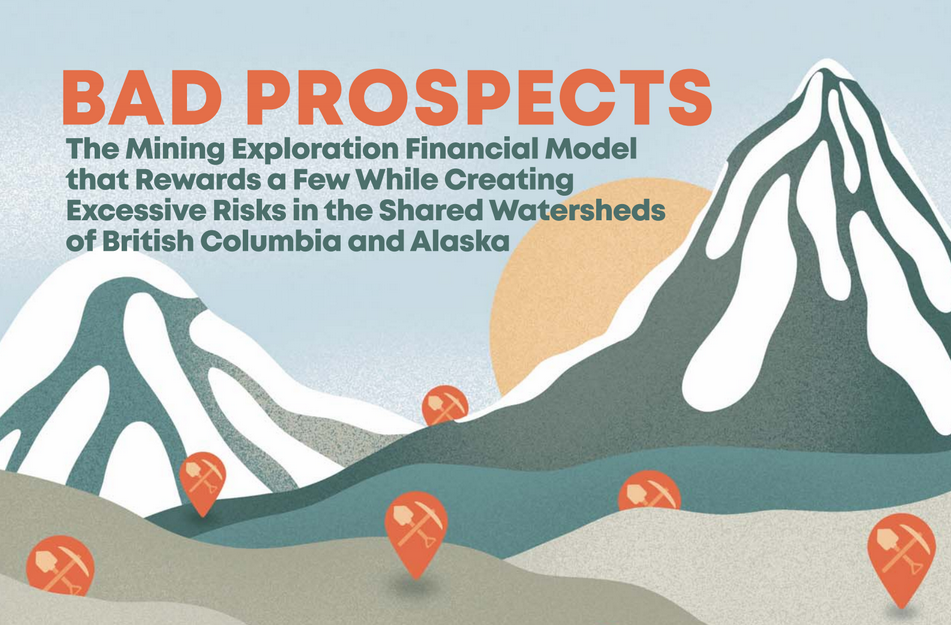
A new report by the Environmental Investigation Agency (EIA), a US-based non-profit, sheds light on how the mining industry raises money for mineral exploration. The investigation looked into a common financial strategy known as the Prospect Generator Model (PGM), and in particular at how the model functions across northwestern British Columbia—where it found “a web-like network of more than 450 Canadian companies… focused on claims staking and mining exploration.”
The PGM involves junior mining companies, often referred to as “prospect generators,” that focus on the exploration and discovery of new mineral deposits. The PGM supposedly exists to mitigate the financial risks of mineral exploration. But according to the EIA, the model “shares many of the structural and operational attributes of a Ponzi scheme.” The model involves numerous related companies raising funds for multiple mining claims, with the hope that at least one claim becomes profitable.
The PGM is supported by various Canadian tax incentives, such as Flow-Through Shares and the Mineral Exploration Tax Credit. These incentives allow mining companies to transfer exploration expenses to investors, who can then claim these expenses as deductions on their personal income taxes.
This system results in immediate forgone tax revenue for Canada and BC, which may never be recuperated if the mining companies involved do not make enough profit to be significantly taxed. This is often the case, according to the EIA: “None of the junior mining companies analyzed in this report had significant revenue. All of them operated at a deficit…”
In other words, the Canadian public ends up heavily subsidizing mineral exploration in northwestern BC. The companies “pay handsome executive salaries, dig hundreds of kilometers of holes, build infrastructure such as roads, bridges, and camps along fragile ecosystems like retreating glaciers and wild salmon habitat”—all with the generous support of ordinary taxpaying Canadians.
It’s estimated that the tax benefits available for mineral exploration end up costing the federal government half a billion dollars annually.
Nikki Skuce, co-chair of the BC Mining Law Reform Network, told the CBC: “It very much is about storytelling. I mean, you’re trying to get people excited so that they give you funding. There is something around how people [are] getting some pretty cushy wages just telling stories versus actually mining.”
The EIA’s report calls for a critical reassessment of the PGM, particularly its financial viability, environmental impact, and the role of public funding in supporting it. It urges policymakers, investors, and the public to consider the long-term consequences of this model, both for the economy and the environment.
We concur. It’s time for us to start telling a different story about mining in BC.
